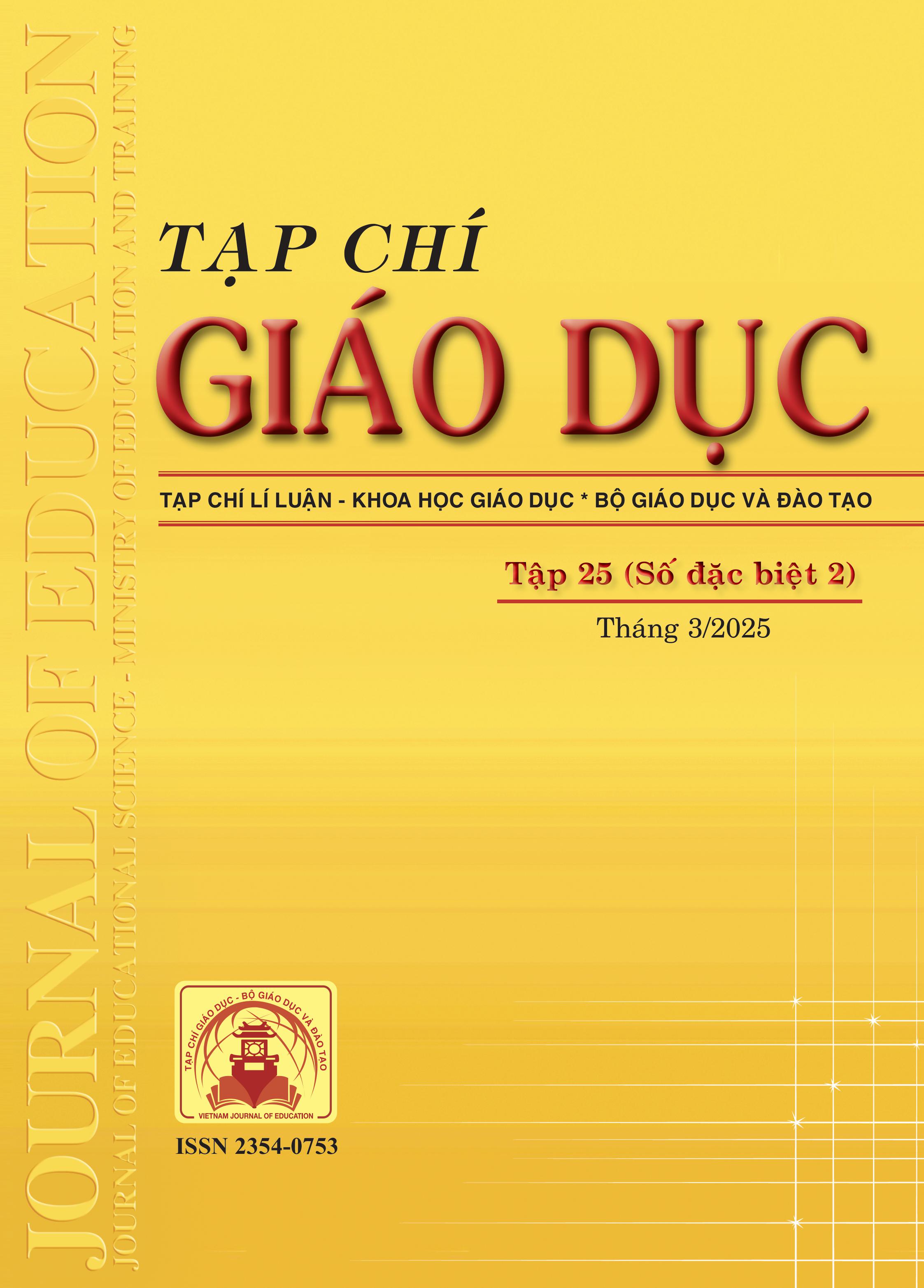Phương pháp đánh giá thường xuyên môn Tiếng Anh theo hướng phát triển năng lực cho học sinh phổ thông: Thực tiễn và đề xuất
Tóm tắt
According to the 2018 general education program, English is a compulsory subject and is included in the main curriculum starting from grade 3. To achieve the goals of the 2018 general education program, in addition to improving the quality of teaching English for high school students, the innovation of methods and ways of assessment is also of special interest to schools because the evaluation stage is an important link in the teaching and learning process, contributing to the success of the comprehensive innovation of Vietnamese education. There are many different stages of assessment such as early-term assessment, mid-term assessment, final assessment; however, regular assessment is an important assessment that contributes to improving students' English proficiency. The article presents some theoretical issues on competence, competence assessment, regular assessment towards developing students' competence, and at the same time presents the practice of English assessment in high schools in Vietnam today, thereby proposing some measures for regular assessment of English subject towards developing competence to improve English competence for high school students. Applying these methods in regular assessment of English subject will help improve students' English competence, and at the same time help teachers have a more comprehensive view of students' learning process.
Tài liệu tham khảo
Anderson, L. W., & Krathwohl, D. R. (2001). A taxonomy for learning, teaching, and assessing: A revision of Bloom's taxonomy of educational objectives. Longman.
Black, P., & Wiliam, D. (1998). Assessment and classroom learning. Assessment in Education: Principles, Policy & Practice, 5(1), 7-74. https://doi.org/10.1080/0969595980050102
Bộ GD-ĐT (2018). Chương trình giáo dục phổ thông - Chương trình tổng thể (ban hành kèm theo Thông tư số 32/2018/TT-BGDĐT ngày 26/12/2018 của Bộ trưởng Bộ GD-ĐT).
Bộ GD-ĐT (2021). Thông tư số 22/2021/TT-BGDĐT ngày 20/7/2021 quy định về đánh giá học sinh trung học cơ sở và học sinh trung học phổ thông.
Guskey, T. P. (2003). The Role of Formative Assessment in Student Learning. Educational Leadership.
Hattie, J., & Timperley, H. (2007). The power of feedback. Review of Educational Research, 77(1), 81-112.
Hawkins, D. (1994). The Informed Vision: Essays on Learning and Human Nature. Yale University Press.
Nicol, D. J., & Macfarlane-Dick, D. (2006). Formative assessment and self-regulated learning: A model and seven principles of good feedback practice. Studies in Higher Education, 31(2), 199-218. https://doi.org/10.1080/ 03075070600572090
Nunan, D. (2003). Task-Based Language Teaching. Cambridge University Press. O'Connor, K. (2018). How to Grade for Learning: Linking Grades to Standards. Corwin.
Rowe, M. (1995). The capacity for effective task performance in education. HarperCollins. Shute, V. (2008). Focus on formative feedback. Review of Educational Research, 78(1), 153-189. https://doi.org/10.3102/0034654307313795
Stiggins, R. J. (2002). Assessment-driven school improvement: A practical guide for educators. Pearson Education.
Stiggins, R. J. (2005). Assessment for learning: An action guide for school leaders. ASCD. Stiggins, R. J., Arter, J. A., & Chappuis, J. (2006). Student-Involved Assessment FOR Learning. Pearson Education.
Tannenbaum, R. (2000). The Psychological Foundations of Work and Achievement. Oxford University Press.
Vương Hồng Hạnh (2020). Quản lí dạy học môn Tiếng Anh cho học sinh trung học cơ sở theo hướng phát triển năng lực thực hành tiếng trong Chương trình giáo dục phổ thông mới. Tạp chí Khoa học Giáo dục Việt Nam, số đặc biệt tháng 12, 98-103.
Wiliam, D. (2011). Embedded formative assessment. Solution Tree Press.
Đã Xuất bản
Cách trích dẫn
Số
Chuyên mục
Giấy phép

Tác phẩm này được cấp phép theo Ghi nhận tác giả của Creative Commons Giấy phép quốc tế 4.0 .












